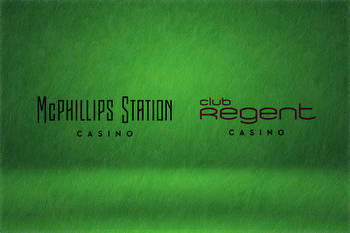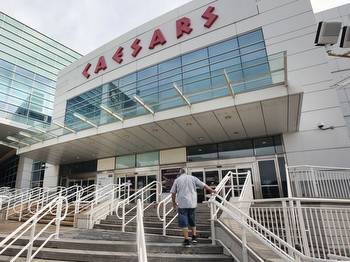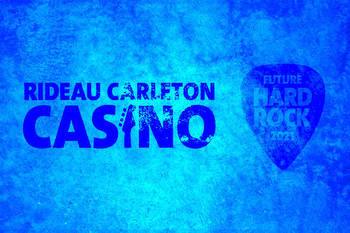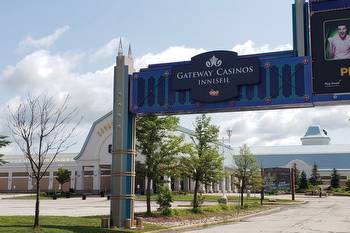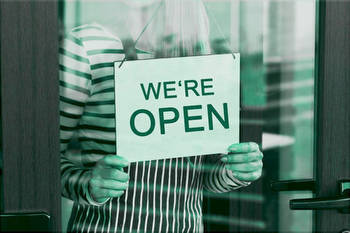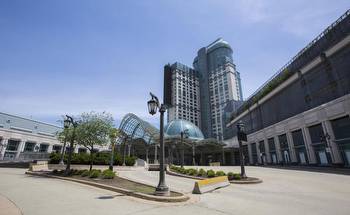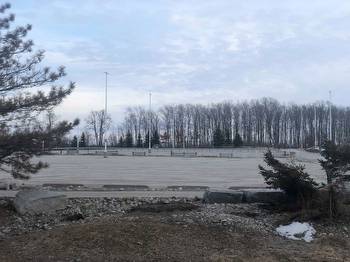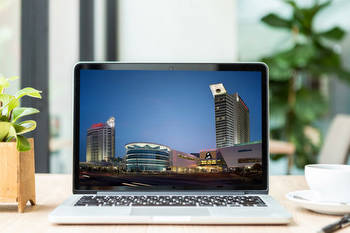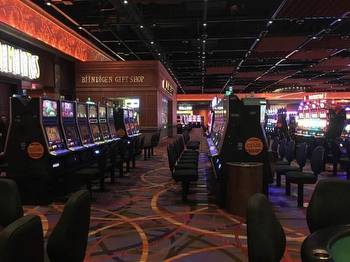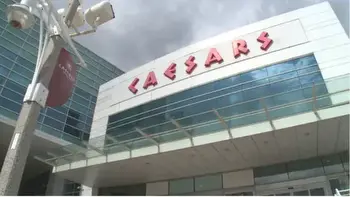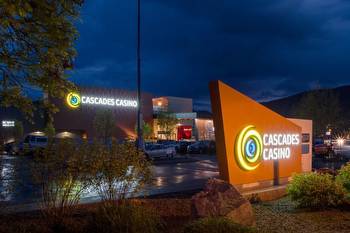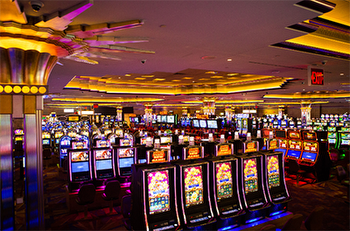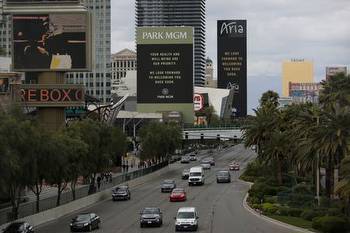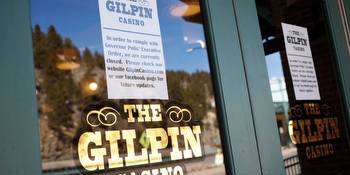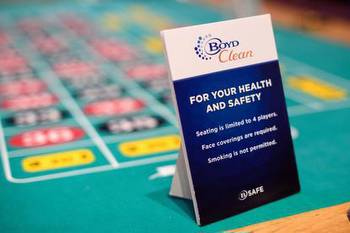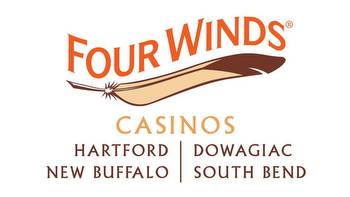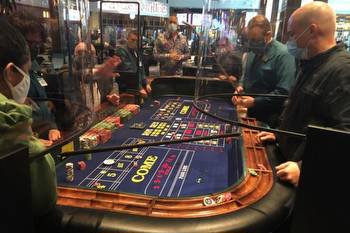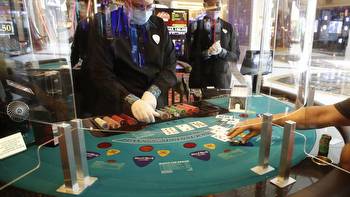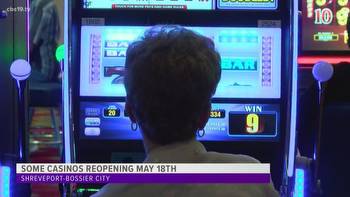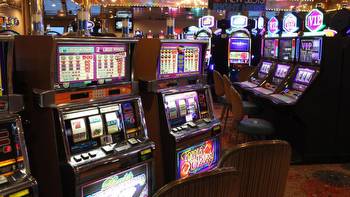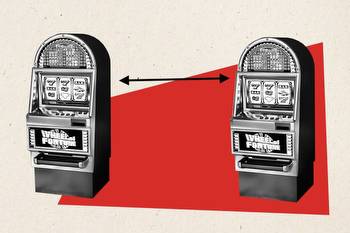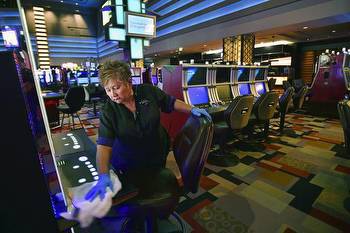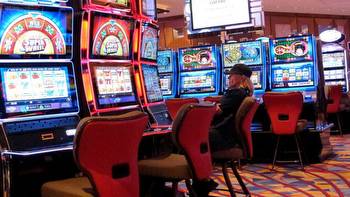Masks required, fewer games, buffet closed: Idaho casino offers glimpse of gambling's future
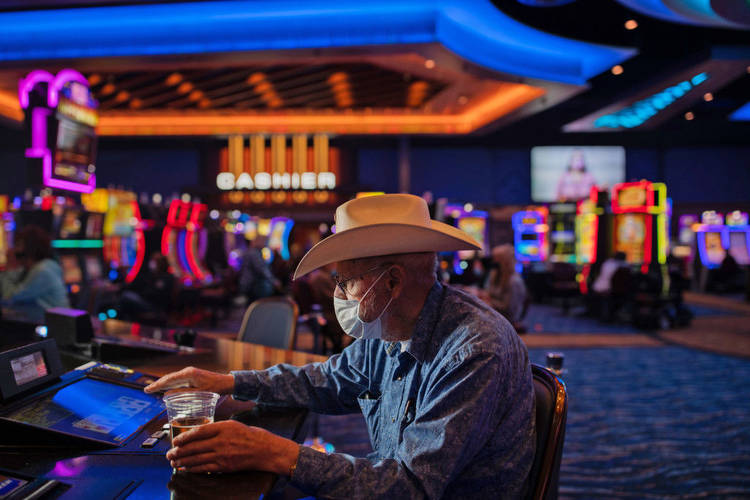
The video gaming machines were whirring, buzzing and chiming at the Coeur d’Alene Casino Resort Hotel on a recent afternoon — familiar sounds amid an otherwise stark new reality.
Since the Worley, Idaho, casino reopened April 27, after being closed for more than a month because of the COVID-19 pandemic, its operations have looked very different.
Rather than waiting in line for all-you-can-eat crab and prime rib at the casino’s buffet — which is closed indefinitely — guests queued up at the main entrance, standing 6 feet apart, to have their temperature taken before coming inside.
On the casino floor, every other gaming machine was turned off and patrons no longer sat shoulder to shoulder. Large monitors hanging on the walls looped a video instructing people on how to properly smoke or sip a drink while wearing a mask, a new requirement for all employees and guests.
Owned and operated by the Coeur d’Alene Tribe, the casino was the first in the United States to resume operations since the $75 billion gaming industry shuttered in March. For hundreds of other casinos across the country, still grappling with when and how to reopen, the Coeur d’Alene offers a glimpse of how implementing new public health measures may play out in establishments known for drawing large crowds and selling fun.
"It’s been really challenging because we're known for being friendly and socializing,” Laura Stensgar, CEO of the Coeur d’Alene Casino Hotel Resort, said. “But we knew that to open our doors we had to establish strict, new protocols and provide that safe environment with social distancing for our customers and employees.”
The tribe’s leaders felt an urgency to reopen the casino: Nestled in the Idaho panhandle about 35 miles southeast of Spokane, Washington, the resort employs more than 850 people. It opened in 1993 as a bingo hall and has since grown to a complex that includes a 300-room hotel, restaurants and lounges, a conference center, spa and 18-hole golf course. Last year, it generated tens of millions of dollars in revenue.
“The casino financially provides for our entire government, like law enforcement and educational programs,” Ernie Stensgar, chairman of the Coeur d’Alene Tribe, said. Casino employees were paid during the closure; tribal officials say they knew they could not financially sustain that for long. “So, we knew pretty immediately we needed to make plans to get it going again, but safely,” Ernie Stensgar said.
Since the phased reopening began, some parts of the resort, such as the off-track betting room and spa, remain closed. The six restaurants and lounges are limited to 25 percent capacity, with plexiglass barriers installed at cashier windows.
Areas where lines usually form, such as the reception desk and bar, are now marked with yellow strips of tape for distancing. Once a 24/7 operation, the property is shut down from 3 a.m. to 7 a.m. for deep cleaning.
“It’s really been a culture shock for a lot of people,” said Nizhoni Hodge, manager of the casino’s guest services program. Hodge, 41, who is responsible for training employees on hospitality, said that rather than teaching them how to ask a customer if they need a drink, she’s explaining how to politely ask customers to put their masks back on. “If you would have told me last year I’d be teaching people how to wear a mask, I would not have believed it.”
Casino executives worked with the tribal leaders and the local health officials — from the tribe’s health care center and the Panhandle Health District — for weeks to determine how to reopen the casino. They relied in part on the federal guidelines on when to reopen state economies and the Centers for Disease Control and Prevention’s recommendations on social distancing. They agreed that they would not reopen until they saw a downward trend in the number of confirmed coronavirus cases and hospitalizations during a 14-day period — not just in northern Idaho, but in other nearby cities, such as Spokane, from where the casino draws many of its patrons.
As of last Thursday, there were no confirmed COVID-19 cases on the Coeur d’Alene reservation and in Benewah County, one of two counties in which the tribe’s land sits. Kootenai County, where the casino is located, had 66 coronavirus cases as of Monday, but had not seen significant spikes since mid-April. For public health stakeholders, one of the highest priorities was making sure everyone at the resort was wearing masks.
“I don’t think I would have approved of them opening otherwise, honestly,” said Janice Jordan, medical operations director at Marimn Health, a health care system in northern Idaho, which is owned and operated by the tribe.
According to the American Gaming Association, a trade organization, 91 of the country’s 989 casinos have resumed operations. The majority are run by Native American tribes, like the Coeur d’Alene, which operate as sovereign nations, and have sole authority on when they can reopen their businesses. Some commercial properties, including 14 in Deadwood, South Dakota, three in Arkansas and several Louisiana riverboat casinos, have also resumed operations.
Industry experts say that plans for reopening will vary, depending on the casino’s size, which games it operates and whether there are also restaurants, pools, spas and nightclubs. The Coeur d’Alene has no table games, but casinos that do will have to consider how to sanitize playing cards, chips and dice.
“We're all focused on health and safety first,” Bill Miller, president and CEO of the American Gaming Association, said.
Miller added that casino operators are wrestling with how to implement these new public health measures while maintaining security.
Prior to the COVID-19 pandemic, most gaming regulators and casino operators had policies that barred patrons from wearing masks or anything that concealed their identity, to prevent suspicious activity, such as cheating. Now, casinos including Coeur d’Alene are requiring masks. Coeur d'Alene Casino officials declined to comment on any specific security changes.
Other obstacles to casino reopenings include pushback by union leaders demanding enhanced safety measures, gaming regulators’ review of proposals and state and local officials’ public health concerns. In Louisiana, Gov. John Bel Edwards allowed video poker and casinos to resume operations last week, but New Orleans officials have still required them to remain closed. Atlantic City, New Jersey, has not set a target date to reopen its casinos.
At least one Michigan tribal casino’s efforts to reopen at the beginning of May were stymied by state officials, who warned the tribe that off-reservation casino employees and customers could be subject to fines for violating Gov. Gretchen Whitmer’s stay-at-home orders.
Also this month, the Nevada Gaming Commission approved guidelines set forth by the state’s gaming control board, including limiting the number of people around table games, increasing the distance between gaming machines and keeping nightclubs closed.
But the gaming board’s standards have met resistance from union leaders and workers, who want more safety measures and employee protections, such as employer-paid COVID-19 testing of all staff before resuming work and cleaning of all high-touch surfaces every hour. Culinary Workers Union Local 226, which represents 60,000 casino workers in the state, is also demanding that regulators publicly release all reopening plans submitted by casinos.
“As casinos move to reopen, the Culinary Union will not allow workers to be experimented with,” Geoconda Argüello-Kline, secretary-treasurer for the union, said.
Download the NBC News app for full coverage and alerts about the coronavirus outbreak
Most of the Las Vegas Strip casino operators are hoping to reopen by the summer, if the gaming control board approves their plans.
But it’s unclear whether customers will return — particularly those who previously traveled long distances to gamble. Miller said that he believes that many customers are eager to return to casinos, but it may take longer for other patrons to feel safe flying and staying in hotels.
“Making sure that you are demonstrating to the guests your commitment to sanitation and to a clean gaming floor, that your employees are wearing masks and having adequate sanitizing stations readily available” will help customers feel comfortable, he said.
At the Coeur d’Alene Casino, officials said customers are returning. At the May 1 grand reopening, customers lined up around the building, according to CEO Laura Stensgar. Since then, there’s been just a 6 percent drop in customers compared to the same period last year. Most have complied with the new rules; the few that have refused to wear their masks have been asked to leave.
Last week, Jeri McNett drove about 40 minutes from her home in Spokane to play the slots. For the past five years, she had come to the casino about once a week with her sister, but she hadn’t been since mid-March. McNett, 62, who worked as a hairdresser before she went on disability six years ago, brought her own masks and blue latex gloves, ready to play her favorite slot machine: Lobster Mania.
“I was impressed that they did that,” she said of the mask requirement. “If they hadn’t, I would not have felt comfortable coming.”
McNett and her sister spent about four hours gambling on the machines, an activity she has missed.
She laughed.
“Oh yeah, I was losing good too.”








